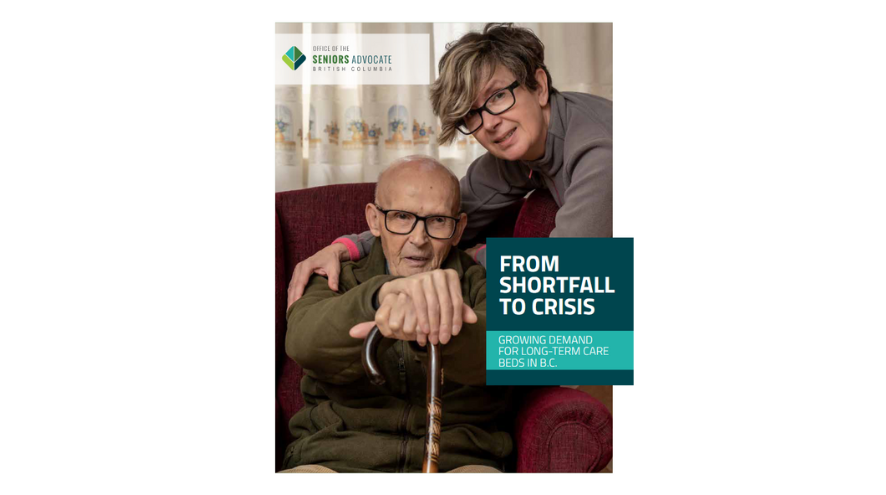B.C. Seniors Advocate report on long-term care
Report from the Office of the Seniors Advocate highlights the growing demand for long-term care spaces in B.C. and sends shares recommendations to government.

On July 29, the Office of the Seniors Advocate released From Shortfall to Crisis: Growing Demand for Long-Term Care Beds in B.C., a report highlighting the growing demand for long-term care spaces, the impact on caregivers and key recommendations to address the shortage – including the implications of not taking action. Some of the key findings include:
- Between 2018 and 2025, the average wait time for a long-term care space increased by 98 per cent, from 146 to 290 days.
- The number of people on the waitlist more than tripled, from 2,381 in 2016 to 7,212 in 2025.
- A decade ago, there were 77 publicly subsidized long-term care spaces for every 1,000 British Columbians aged 75 and over. Today, that number has dropped to 58 and, without intervention, it will fall further to 41 within ten years.
- Sixty-two per cent of residents in publicly-subsidized long-term care are living with dementia.
These are not just statistics - this represents families who are forced to wait for care, often while experiencing unmanageable scenarios. For many caregivers, this results in emotional, financial and physical implications. Long-term care becomes necessary for many people living with dementia as the disease progresses, yet long waitlists mean people often wait months without the support they need.
The Alzheimer Society of B.C. supports the Office of the Seniors Advocate’s recommendations to address the long-term care shortage and will continue to advocate for expanded access to support services and long-term care spaces, while partnering with the Ministry of Health, health authorities and care providers to ensure that people living with dementia receive person-centered care. As the number of people affected by dementia continues to grow, we remain committed to supporting people across the province through our network of resource centres, dementia information and accessible programs and services.
Take action today and raise your voice for people affected by dementia by sharing your personal experiences. Contact us at advocacy@alzheimerbc.org to learn more about creating positive change for people affected by dementia in B.C.
